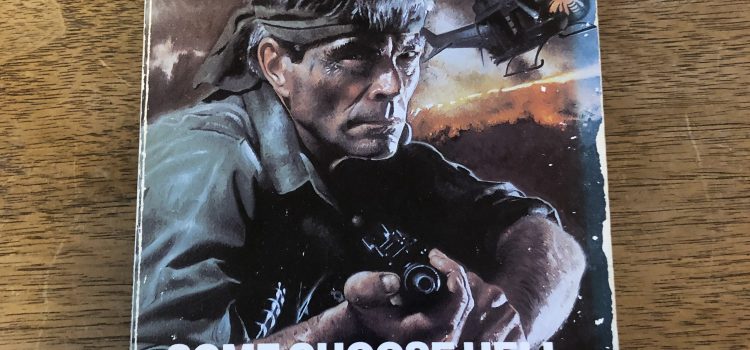
Some Choose Hell is the 9th Soldiers of Barrabas story, and takes the SOBs to South Africa. South Africa in 1985, when apartheid is alive and well. This time, they are hired to protect Bishop Toto, the new black Bishop of Johannesburg.
What they don’t know is that they’re intended to be patsies. The South Africans are intent on assassinating the bishop, even as they’ve invited the SOBs in to protect him.
It gets more complicated than that; by the time Barrabas, Nanos, Hatton, and Bishop arrive in South Africa, the real Bishop Toto has already been imprisoned by BOSS (the Bureau of State Security), and an impostor put in his place. The impostor immediately begins making all sorts of concessions to the white government, sowing discontent, which will peak with his assassination, after which the real Bishop Toto is to be quietly eliminated.
Needless to say, the SOBs interfere, finding themselves at odds with their “employers.”
There’s a significant side plot in this one, namely that of Claude Hayes. It had been revealed in earlier books that Hayes spent some time in Africa after Vietnam, though in more of a revolutionary role than the more common anti-Communist mercenary role that many Vietnam vets took up in Africa after the war. We get to see some more of Hayes’ past in Mozambique at the beginning. Along the way, we find out that he wasn’t just a regular fighter. He was good enough that he’s attained near-legendary status in FRELIMO. He even has another name: Kwati Umba.
Hayes is visiting his friends in Mozambique when the story opens. He agrees to go along on a “perfectly safe” op that goes sideways, and is reported killed. But Hayes isn’t so easily done in. And he reappears at an opportune time to help the SOBs and join the mission.
There’s a lot going on in this book. It’s lighter on action than some of the others, but fills in with intrigue. There are plots, counter-plots, and betrayals. Trust is in short supply. Murders are plotted, executed, and fumbled, including of family members who get in the way. Characters are revealed to be working against their public personas. It’s quite a complex bit of storytelling, but Hardy pulls it off.
In the end, of course, the bad guys get theirs. As always with the SOBs series, there are more shades of gray than out-and-out black and white, animalistic bad guys and saintly good guys. It perhaps errs a bit more on the side of pure evil in the form of the BOSS conspirators than in some other Africa-set stories. It takes on even more shades of gray when the current unrest and violence in post-apartheid South Africa is set against it. But this was written in 1985, and as the writers of this series have tended to show, bad guys can often be fighting worse guys. And in this case, BOSS is definitely the “worse guys.”